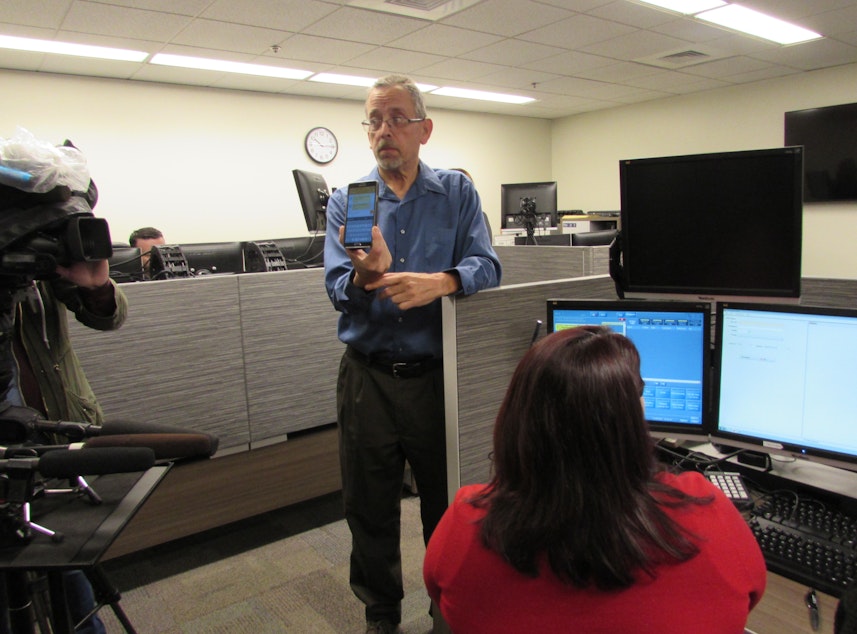You can now text to 911 in King County — but should you?

Officials say King County is now accepting texts to 911. But they say emergency texting is intended for specific communities: people who are deaf and people who can't safely place a voice call.
Ben Breier, who manages the program for King County, said there are guidelines for people who text about an emergency: Include the location and city you’re calling from and the nature of your emergency. Try to keep your messages brief and concise. And no emojis.
These texts are already accepted at call centers in Snohomish and Thurston counties, and Pierce County expects to accept texts early next year. Breier said neighboring counties haven’t seen a surge in emergency texts and King County anticipates receiving about 30 to 50 “live, actual, appropriate text messages in a month.”
The county wants deaf and people hard of hearing to make use of the program, as well as anyone in dangerous situations “like domestic violence or a home invasion,” Breier said. But he emphasized that the texting service isn't meant to replace calling 911.
"And we do ask the public to remember, ‘Call if you can, text if you can’t,'" Breier said.
That’s because voice calls still provide dispatchers with more information faster.
Marina Shinderuk is a 911 dispatcher for the Seattle Police Department. She said getting the details by text can take longer and deprives dispatchers of important cues.
Sponsored
“I will probably have to end up asking a lot more questions than I would if I was to be able to get information by hearing background noise and hearing the inflection in their voice,” she said. From a voice call, Shinderuk can tell if the caller sounds scared, if there's shouting or screaming, and if the background noise matches the scene the caller is describing – details that text messages won’t relate.
Jim House is deaf and co-chairs the Seattle/King County Disability Advocacy Group. Speaking through an ASL interpreter, he said in decades past, deaf people “were taught that the best way to reach 911 is to use a landline telephone and leave the phone off the hook. Then hope and pray that help will actually come.”
Sponsored
Dana Lockhart, civilian manager of the Seattle Police Department’s victim support team, said people who fear drawing the attention of their abuser often have to text rather than call family members to alert them to problems.
“A lot of the survivors we’re working with, they’re very savvy in their safety planning,” she said. “Part of that plan oftentimes is, ‘I’m going to text my friend' or 'I’m going to text my mom and let them know they should call 911’” while telling their partner they’re texting for a different reason, she said.
Lockhart said the ability to text 911 directly is a logical next step in these situations. And it could be useful to anyone who witnesses something they’re afraid to call about in an enclosed space like a car or bus.
"It allows the bystanders, the witnesses of these crimes, to have a safer avenue and make that call discreetly," she said.




